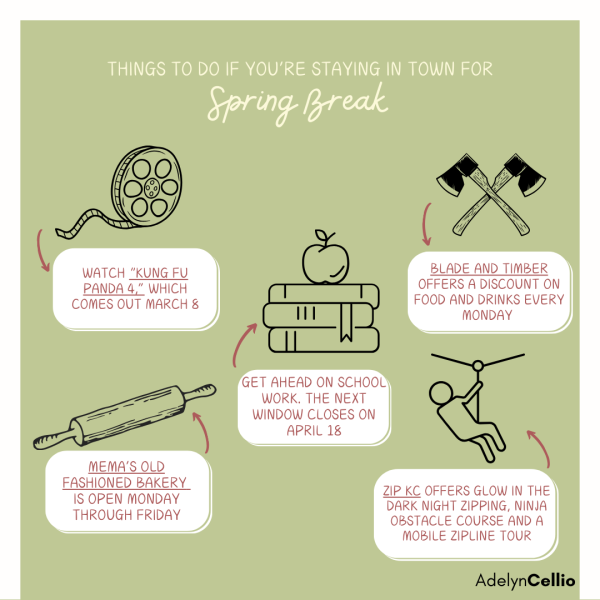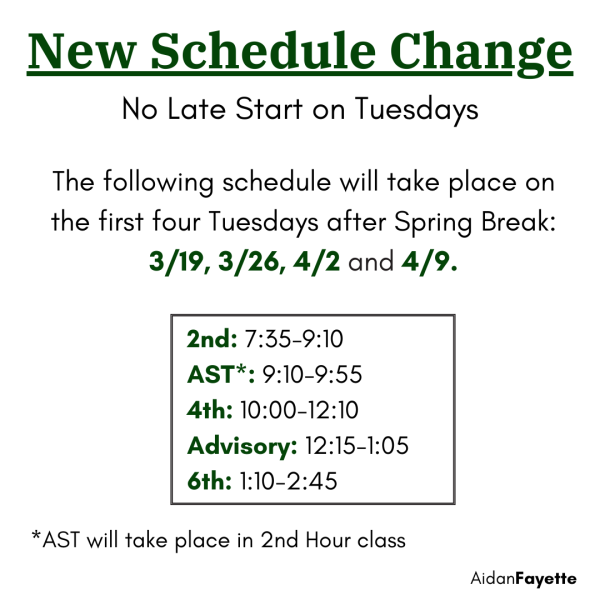School pressure affects students’ health
When senior Anjali Pradeep entered the last quarter of her sophomore year, her mind spun when she thought about taking her first Advanced Placement exam. Thoughts of receiving a failing score on the exam frequently flashed in her brain. Worries about letting those around her — her parents, her teachers, her high-achieving friends — down instantly would send her into a flurry of panic.
But the stress began to take a toll on more than just her mental state. For the last two months of the school year, she found herself in a constant state of vertigo. She wasn’t able to walk straight, she felt as if her knees were buckling beneath her each time she stood up and she swayed from side to side each time she sat down. For two months, Pradeep wasn’t able to drive, participate in extracurricular activities, and she often spent evenings in the emergency room due to her stress-induced condition.
“I have my own expectations to live up to, and my parents definitely have high expectations of me,” Pradeep said. “We live in such a privileged community with awesome education that it’s expected that we get the best education and take all the AP courses. I feel that if I don’t keep up to par with what’s expected of me, I’m not going to go far in life.”
As a district, Blue Valley boasts a 25.4 average composite ACT score, and 91.4 percent of students take college-credit bearing classes. Counselor Kristi Dixon said that in order to live up to the standards set by a community focused on college readiness, students often put their performance in school before their mental and physical well-being.
“Academics is such an important part of the Blue Valley community, which is great because I feel like our kids are typically so well prepared when they leave high school for whatever they want to do next, but with all that preparation comes a lot of stress,” Dixon said. “[Mental health and school pressure] is such a delicate balance, and I don’t know that we as a community always do a great job of helping kids balance that. We definitely have a culture of perfectionism, and it can be hugely detrimental to a kid.”
To a degree, stress can be beneficial to one’s motivation. However, too much can result in a variety of mental and physical consequences, ranging from the short-term to the long-term. Those who experience too much stress can develop physical conditions, as well as mental health conditions, including depression, anxiety and personality disorders. Dixon said that high school is the prime period in an adolescent’s life where the consequences of stress come to the surface.
“High school is where it all bubbles up, just because you have more responsibilities than you’ve ever had in your life,” Dixon said. “Especially junior year, when it’s the first time to take multiple AP classes, and for a lot of people, it’s the first year where they can do varsity sports or audition type courses. It’s the perfect storm of everything converging. So sometimes, that anxiety has been chugging along like a steady little train, and then junior year hits, and it just takes off because all of these stressors land on you.”
While the effects of stress vary from individual to individual, school pressure has driven some to take their own lives. In January 2014, a University of Pennsylvania freshman and track runner committed suicide after being overwhelmed from the pressures of school and track. In fall 2014, two students from Palo Alto, California, a community in Silicon Valley where students attend high school across the street from Stanford, ended their lives. And in November 2014, two Olathe Northwest students who were active members of the varsity soccer team committed suicide within 48 hours of each other. Kevin Hines, a motivational speaker who specializes in mental health and suicide prevention, said school pressure is an issue in all communities that he visits.
“I’m talking to kids all over the country who have homework that they can’t get done until three in the morning,” Hines said. “So that means that this kid is getting maybe three hours of sleep a night, and when they’re awake in the morning this kid is drinking coffee or doing whatever he or she needs to do, which isn’t healthy. They’re devastating their minds and their bodies just to get the grade. School is absolutely important to everyone’s life, but I think that we need to go about it in a new way of thinking before we drive too many more kids to the brink.”
Dixon said always receiving an A is not realistic as to how one’s life will be once he or she enters college or the workplace. She said there is benefit in receiving a B in high school in order to realize that one won’t always receive a perfect grade or score.
“Kids want to do the very best that they can do, and there’s truth in that colleges want this particular type of kid, so when you say to a kid, ‘You don’t have to have an A,’ it’s a hard sell because they know that colleges would really prefer the A,” Dixon said. “But then as a counselor, you’re coming from this mental health standpoint that you might need to get a B in this class so you can breathe and experience a B now where you’re safe, as opposed to you go to college and you get a B and completely lose your mind.”
As a parent, Steven Arkin experienced this when his son, Jason Arkin, a 2012 graduate of Blue Valley Northwest, began a rigorous electrical engineering program at Northwestern University. In high school, Jason received fives on all nine AP exams he took, was a National Merit Scholar and graduated in the top one percent of his class. However, Jason had been battling depression since he was 12 years old. When he started at Northwestern, he wasn’t accustomed to working hard in order to receive an A in a prestigious environment where he was surrounded by his accomplished peers. The pressure ultimately surmounted to be too much, and Jason took his life at the age of 21, two weeks before he started finals, on May 19, 2015.
“All of a sudden [Jason] was in a lot of pressure in terms of all the competition,” Steven said. “Most of the pressure related to competition and knowing that even though he was in the top one percent, everybody next to him was in the same boat. Even though they were all feeling the pressure, for somebody who’s depressed, their perception of how to deal with that pressure is different. We thought that the pressure that was on a kid that was around peers that were just like him would be good and would nurture some good thinking, but for some kids that are wired differently, that can be counterproductive.”
Arkin, Dixon and Hines all urge students who are feeling overwhelmed to the point that their mental and physical well-being are at risk tell someone they trust who can help them take steps to receive the proper treatment. Dixon said she helps many of her students, like Pradeep, with time management skills and helps them make schedules in order to realistically complete what they need to get done.
“If you keep things to yourself, nothing is going to change,” Pradeep said. “If you’re someone that deals with anxiety or panic attacks, the best remedy is talking to someone. That is usually the hardest thing for someone like me to do because your thoughts are irrational, so you’ll think no one will understand you. But it’s important to get it out there because if you don’t, it will sit inside of you, and it’ll grow until it will physically take a toll on you.”
While Pradeep still takes on a heavy course load and finds her time after school devoted to extracurricular activities almost every day, she now has better control of her stress. When she feels like she is overwhelmed or is going to have a panic attack, she calms herself down by excusing herself from class for a moment and listening to music. She also works with Dixon to manage her schedule and ensure that her mental and physical state doesn’t get to where they were her sophomore year.
“[Having vertigo] was a great eye opener for me because it made me realize that I’m putting a ton of expectations on myself,” Pradeep said. “Everyone is making a huge deal about having these grades and these scores, when in reality, if you look from a bigger point of view, even though high school is important, it’s not going to be the decider of your life. Sure, having As and Bs is a good thing — if you have the capacity for that, work for it. But if you have to go through what I went through to get to those places, it’s totally not worth it. I feel like people in high school put emphasis on all the wrong places.”


















